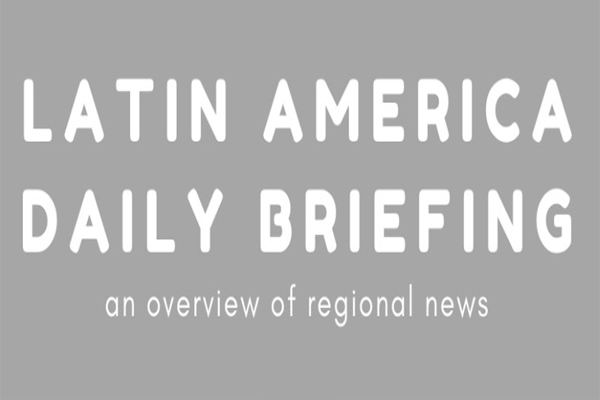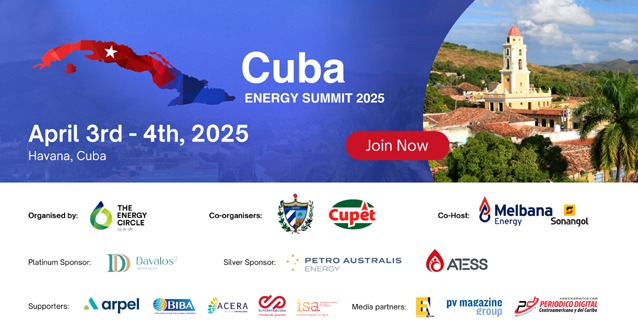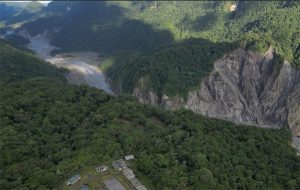
News Briefs
Regional
- What to Make of Trends in Latin American Presidential Elections?: The left-right spectrum is the wrong analytical lens for shifts in Latin American politics over recent decades, writes Eric Hershberg at the Aula Blog. “Latin American public opinion has overall been remarkably stable on citizen self-placement along the left‑right divide, with only a modest, and non-linear, shift toward the left. More significantly, the driving logic of Latin American politics since the advance of democracy in the 1980s has been to punish leaders who have presided over a decline in wellbeing, and to reward presidents who are perceived to have delivered material or symbolic rewards to large segments of the population.” (See yesterday’s post on different takes on the region’s political trends.)
Haiti
- At least eight inmates have died in a Haitian prison that ran out of food two months ago. Hunger and oppressive heat in the overcrowded penitentiary contributed to the inmates’ deaths, reports the Associated Press. The United Nations Security Council released a report last week saying 54 prison deaths related to malnutrition were documented in Haiti between January and April alone.
Honduras
- A trove of Dutch and U.S. legal and financial documents shared with The Intercept reveal, for the first time, the flow of international funding in the days leading up environmentalist Berta Cáceres’ killing in 2016. (See Tuesday’s post.)
Brazil
- Former Brazilian education minister Milton Ribeiro was arrested earlier this week connection with a federal police corruption investigation. Ribeiro left his post in the Bolsonaro administration in March, after media reported leaked conversations apparently revealing a plan to favor municipal allies with his agency’s budget. Ribeiro allegedly had two Evangelical pastors as unofficial intermediaries approaching mayors who could help Bolsonaro’s campaign and demanded bribes. (Associated Press)
- Progress protecting Brazil’s environment has reversed over the past decade, in response to pressure from the farmers’ lobby and budget cuts, reports the Economist. And the killings of Dom Phillips and Bruno Pereira highlight the rising threats of organized crime in the Amazon.
- Brazilian presidential candidate Luiz Inácio Lula da Silva promised to seek “net zero deforestation” if he wins October’s presidential elections, in a political plan published this week. He committed to the defense of the country’s environmental heritage, and said deforestation efforts would include restoration of degraded areas, part of a push to strengthen the green economy. (Reuters, Folha de S. Paulo)
Regional Relations
- Uproar about Nicaragua permitting Russian troops to enter the country — part of a routine cooperation between the two countries for purposes of training, law enforcement or emergency response — is a tempest in a teapot, but of the Kremlin’s own making, writes Wilfredo Miranda Aburto in the Post Opinión.
- Colombian president-elect Gustavo Petro said he has “reached out to the Venezuelan government to open the borders and restore the full exercise of human rights on the border,” in keeping with a campaign promise to reestablish diplomatic relations with Caracas, reports the Miami Herald.
Colombia
- Petro has promised sweeping reform, but but high inflation and a budget deficit will challenge his spending plans, reports the Wall Street Journal.
- Petro pledged to ban new contracts for oil exploration in Colombia. If he follows through, the country would be the world’s biggest crude exporter—in terms of crude oil’s share of its total exports—to take this step, reports Catherine Osborne in the Latin America Brief. But implementation will be challenging, according to experts.
- How Petro responds to Colombia’s complicated problems — social demands are high and resources low — will come to define Petro’s presidency and faith in the Latin American left’s ability to govern, writes Mark Kennedy in Global Americans.
Chile
- Boric’s partner, anthropologist Irina Karamanos, will now be known as the “sociocultural coordinator of the republic’s presidency,” part of an effort to reinvent the office of the First Lady. An initial proposal to rename the “first lady’s cabinet” to “Irina Karamanos’ cabinet” generated backlash from many members of the opposition, who said that the government was trying to personalize an institutional role. (Associated Press)
- The Harmonization Commission of Chile’s Constitutional Convention finished its work on June 17, and the final plenary votes on the results will begin on Saturday, June 25. (CNN)
- This week delegates voted on the draft constitution’s preamble, on a paragraph by paragraph basis, ultimately approving only the first of several proposals. The text will read: “We (nosotras y nosotros), the people of Chile, made up of various nations, freely grant ourselves this Constitution, agreed upon in a participatory, equal and democratic process.” (La Bot Constituyente, see today’s Chile Constitutional Updates)
Paraguay
- Several of Paraguay’s opposition parties have been unusually proactive and joined forces in “Concertación Nacional,” that could successfully challenge the ruling Colorado party in next year’s presidential elections, according to the Latin America Risk Report.
Regional
- A 400 year old test aimed at determining whether a newborn breathed before dying is standard practice in several Latin American countries, where it has been used to charge women with homicide. But the flotation test can easily be wrong, putting women who suffer obstetric emergencies and stillbirths at risk of prosecution under draconian abortion regulations, reports the Los Angeles Times.
- Sex education is patchy in Latin America, and teenage pregnancy rates are high in the region, reports the Economist.
Jordana Timerman/Latin America Daily Briefing
http://latinamericadailybriefing.blogspo












